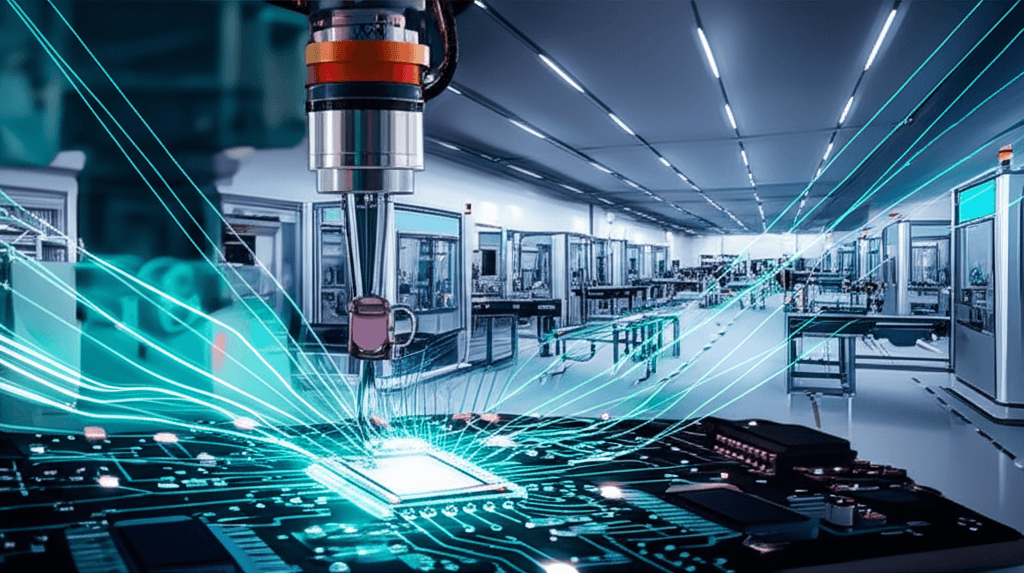Kaynes' ₹352 Cr Bhopal Plant Propels India's AI Hardware Dominance
This strategic Bhopal plant integrates into Kaynes' national expansion, fostering jobs and boosting India's electronics self-reliance.
July 15, 2025

In a significant move that bolesteps Madhya Pradesh's position in India's burgeoning electronics manufacturing landscape, Kaynes Electronics Manufacturing Pvt Ltd (KEMPL), a subsidiary of the established Kaynes Technology India, is set to invest ₹352 crore in a new production facility in Bhopal. This strategic investment, announced on July 13, will establish a state-of-the-art electronics manufacturing unit at the Badwai IT Park.[1][2] The plant, which will be spread across five acres, is projected to create over 1,000 skilled jobs and is anticipated to commence production by the middle of 2026.[1][2] This development marks Kaynes' first major foray into Central India, expanding its national footprint which already includes eight manufacturing facilities across the country.[1][2]
The Bhopal facility represents a crucial component of Kaynes Technology's broader strategy to become a fully integrated player in the Electronics System Design and Manufacturing (ESDM) sector.[3][4] With over three decades of experience, Kaynes serves a diverse range of high-value industries including automotive, aerospace, defense, medical, industrial, and IoT.[1][4][5] The new plant will feature advanced Surface Mount Technology (SMT) lines for producing high-precision electronic assemblies, catering to the growing demands of its extensive customer base.[1] This expansion aligns with the company's focus on high-density printed circuit boards (PCBs) and other advanced electronic components, strengthening India's domestic manufacturing capabilities and its position as a global manufacturing hub.[6][2] The commitment to Bhopal was highlighted during the Global Investors Summit (GIS) 2025, where Kaynes pledged the ₹352 crore investment, with some reports suggesting potential job creation of up to 1,650 positions.[7][8][9][10][11][12]
This major investment is heavily supported by the Madhya Pradesh Semiconductor Policy-2025, a proactive government initiative designed to attract significant domestic and global investment into the electronics and semiconductor sectors.[1][13] The policy aims to establish a robust ecosystem by offering incentives, infrastructure support, and a skilled workforce.[14][13] Chief Minister Dr. Mohan Yadav has been a vocal proponent of this vision, emphasizing the state's readiness to become a technology manufacturing leader and contribute to the national goal of self-reliance in electronics and semiconductors.[1][15] The policy includes attractive provisions for investors, such as capital investment subsidies, interest subsidies, and concessions on electricity tariffs, making the state a competitive destination for high-tech manufacturing.[13][15][16] The establishment of the Kaynes unit is seen as a direct validation of these policies and is being facilitated through the Collaborative Centre for Innovation and Policy (CCIP), underscoring the strong partnership between the industry and the state's Science and Technology Department.[1]
The Bhopal plant is part of a larger, ambitious expansion by Kaynes Technology, which is making significant strides in the semiconductor industry. The company is also investing heavily in Outsourced Semiconductor Assembly and Test (OSAT) facilities, notably a ₹2,800 crore facility in Hyderabad and a major ₹3,307 crore semiconductor manufacturing plant in Sanand, Gujarat.[17] The Sanand facility, operating under the subsidiary Kaynes Semicon, is expected to produce millions of chips daily and recently achieved a major milestone by preparing to deliver India's first commercially packaged semiconductor chip in July 2025.[17][18][19][20][21] These OSAT and fabrication units are critical for the entire electronics value chain, providing the necessary backend support for chip manufacturing. The components produced, including power management chips and processors, are fundamental to the advancement of artificial intelligence, electric vehicles, and 5G telecommunications.[17][22] By building these capabilities domestically, Kaynes is not only reducing India's reliance on imports but is also positioning itself to capture a significant share of a global market projected to grow substantially.[14][22] This strategic vertical integration, from component manufacturing in Bhopal to semiconductor assembly in Gujarat and Telangana, showcases a comprehensive approach to dominating the electronics and AI hardware landscape.[23][24]
Sources
[12]
[15]
[16]
[17]
[18]
[20]
[22]
[23]